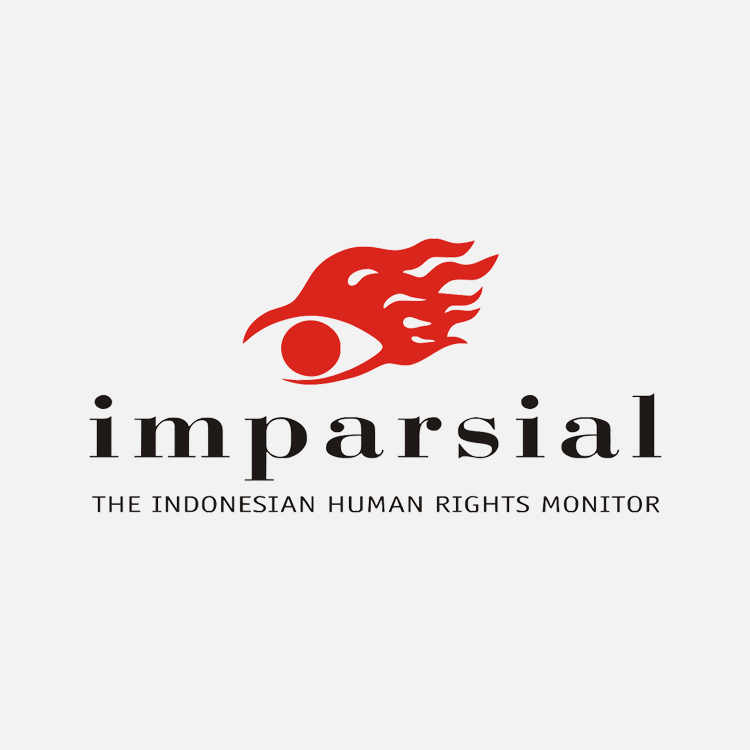
About IMPARSIAL: The Indonesian Human Rights Monitor
Imparsial was established by 18 human rights activists in Indonesia. This institution is an incorporated association with the deed of establishment Number 10/June 25, 2002 by notary Rina Diani Moliza, S.H. The founders of Imparsial are, among others: T. Mulya Lubis, Karlina Leksono, M.M. Billah, Wardah Hafidz, Hendardi, Nursyahbani Katjasungkana, [the late] Ade Rostina Sitompul, Robertus Robet, Binny Buchory, Kamala Chandrakirana, H.S. Dillon, [the late] Munir, Rachland Nashidik, Rusdi Marpaung, Otto Syamsuddin Ishak, Nezar Patria, Amiruddin, and Poengky Indarti.
The founders share the same concern: that state power and its repressive practices show a stronger tendency in Indonesia today. Directly opposite, civil society institutions working in the field of promotion and protection of human rights work to lower this trend towards repressive practices.
In the next few years, Imparsial has set three major sub-programs to be run.
- Human Rights Research and Monitoring
Monitoring output will be produced, especially in urgent action calls, namely appeals to the public to give immediate attention to cases of violations against human rights that occur. Furthermore, our research and monitoring team will produce an Annual Human Rights Report, documentation system on cases of violation against human rights on the basis of Huridocs, and the Human Rights Campaign. This program targets international communities as well as an extensive domestic public. The strategy used is campaign and information dissemination.
- Protection of Human Rights Workers and Capacity Building
The protection of human rights workers is a program that has characterised activities of Imparsial. The focus of this program is to build a system for the protection of human rights in Indonesia, which is a systematic effort to increase human rights workers’ capacities in order to do a better job at preserving human rights. Capacity building of human rights workers refers specifically to the training organised to provide or upgrade the knowledge and technical skills of the human rights workers in terms of investigation, documentation, archiving and preparing reports of cases of violations against human rights that qualify for a legal remedy.
- Critical analysis of State policy from a Human Rights Perspective
The concept of critical analysis from a human rights perspective is packaged in a briefing paper which contains analysis and recommendations on the products of state policy. The focus of this program is to provide a comprehensive analysis of human rights and state policy in the political transition period in Indonesia. The output of this program is: a briefing paper distributed to the government, House of Representatives (DPR) and human rights NGOs, books and articles publishing by using analysis from a human rights perspective, lobbying the government and parliament, organising seminars, FGD (focus group discussions) and workshops on state policy alternatives.
Intern Duties (Example)
Research:
Researching into freedom of assembly and association between Indonesia and Australia;
Researching into the issue of military court reform within Indonesia;
Researching on Indonesian and Australian Anti-Terrorism legislation;
Other duties:
Translating organisation’s documents.
Work Hours
Mon to Fri 9 am – 5 pm
Location
Jalan Tebet Dalam IV J No. 5B
Tebet – Jakarta Selatan
DKI Jakarta 12810
